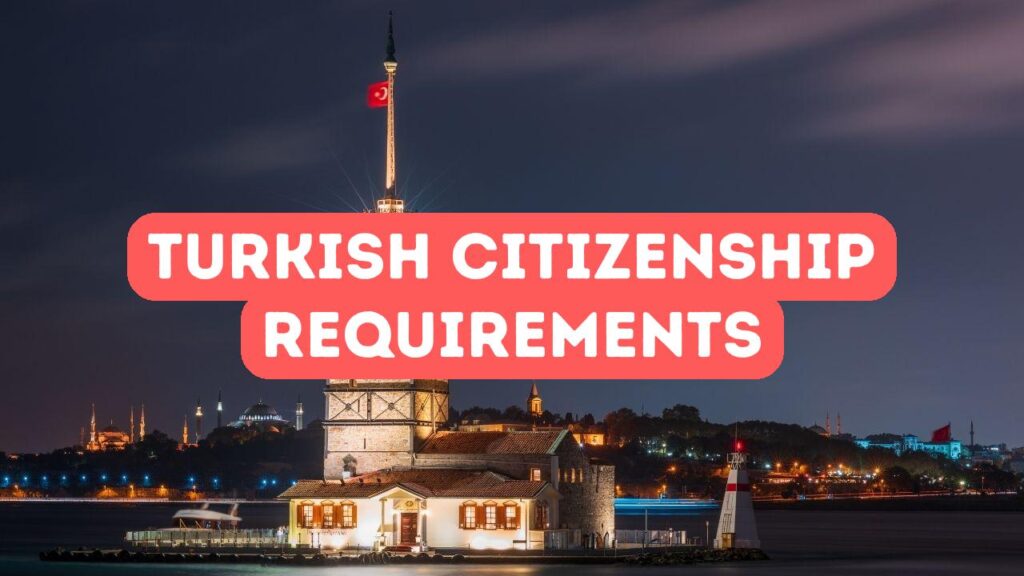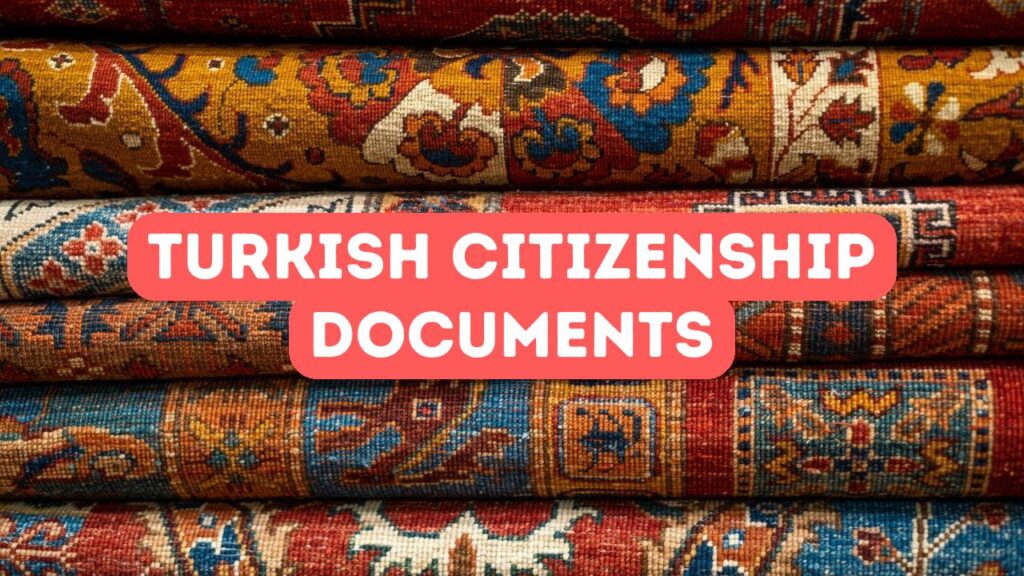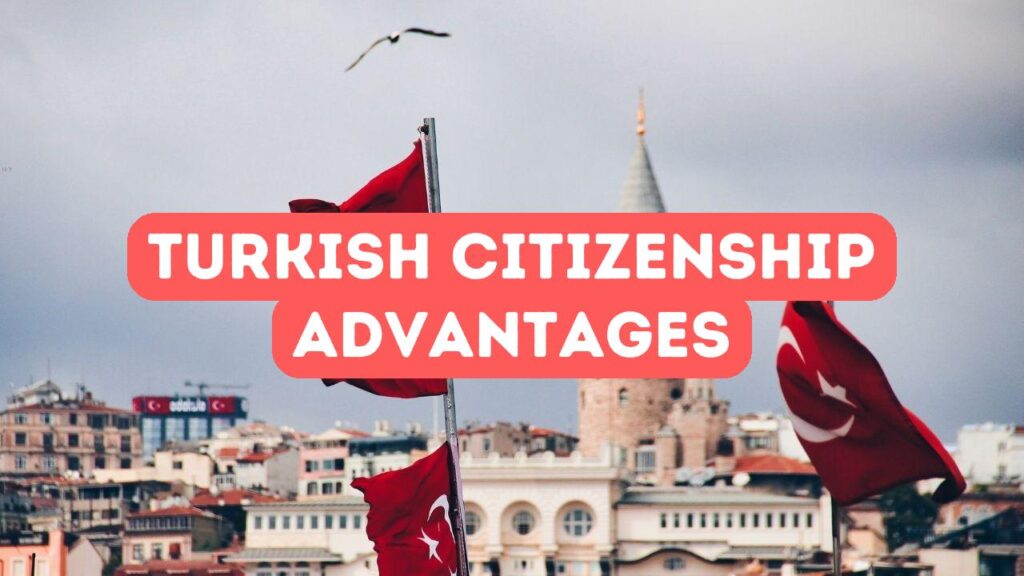Embarking on the journey to become a citizen of Turkey is a process governed by a blend of legal frameworks, administrative protocols, and cultural integration. Turkey, positioned strategically at the crossroads of Europe and Asia, offers a unique blend of rich historical heritage and dynamic modern living, making it an attractive destination for many seeking citizenship. Whether you are an investor looking to capitalize on the growing economy, a professional aiming for career advancement, or an expatriate planning to make Turkey your second home, understanding the specific requirements is crucial. These requirements encompass various pathways such as acquisition by birth, marriage, long-term residence, or through investment, each with its own set of criteria and procedural intricacies. In this blog post, we will delve into the essential prerequisites, legalities, and procedures involved in becoming a Turkish citizen, providing a comprehensive guide to facilitate your path to citizenship.
Residency and Citizenship Timeline
To navigate the road to Turkish citizenship, understanding the residency and citizenship timeline is paramount. Initially, most applicants must secure a residence permit, which typically requires you to reside in Turkey continuously for a minimum of five years without significant interruption. Exceptions exist for those pursuing citizenship through investment, where the process might be expedited. During this period, applicants must demonstrate their intent to settle permanently in Turkey, evidenced by employment, property ownership, or other substantial connections to the country. Proficiency in the Turkish language and knowledge of Turkish culture also play vital roles during this residency phase, underscoring the importance of genuine integration into Turkish society.
After satisfying the residency period, applicants can proceed with their citizenship application. This process involves submitting various documents such as a valid passport, proof of residence, and evidence of financial stability. Additionally, applicants must provide a certificate of no criminal record from their country of origin and any other countries where they have resided. The application is then reviewed by the Directorate General of Migration Management, and a thorough background check is conducted. Applicants will also be called for an interview where they must demonstrate their proficiency in Turkish and their understanding of Turkish laws and culture. The entire process from application to approval can take several months, during which applicants are advised to stay compliant with all Turkish regulations and continue to strengthen their ties to the community.
Once the application has successfully passed the review and the interview stages, the applicant’s file is forwarded to the President’s office for the final approval. This approval process is the concluding step and might extend the timeline by a few additional months, depending on the volume of applications and the thoroughness of the background checks. It is essential for applicants to remain patient and understand that this part of the process is crucial for maintaining the integrity and security of the Turkish citizenship framework. Once approved, the individual will take an oath of allegiance to Turkey, affirming their commitment to uphold Turkish laws and values. Following this ceremonial step, the applicant officially becomes a Turkish citizen, receiving their Turkish identity card and passport, thereby enjoying all the rights and privileges this status confers.
Language Proficiency and Financial Stability
Understanding and meeting the language proficiency and financial stability requirements are essential steps towards becoming a Turkish citizen. A sufficient command of the Turkish language is necessary, as it demonstrates your ability to integrate into Turkish society and participate in its cultural and social life. Applicants are often required to pass a language test conducted by authorized institutions to prove their proficiency. Equally important is demonstrating financial stability, which ensures that you have the means to support yourself and any dependents without relying on social assistance. This may include proof of income, savings, or a stable job, and in some categories, evidence of investments in Turkey. These requirements are designed to ensure that new citizens can contribute positively to the country’s economy and social fabric.
Proving language proficiency often involves enrolling in a language program or taking a proficiency exam that evaluates your speaking, reading, and writing skills in Turkish. This requirement emphasizes the importance of seamless communication within the community and participating in everyday activities without barriers. Additionally, for those applying through various pathways such as naturalization or marriage, the language requirement ensures integration into Turkish cultural and social contexts, enriching the national mosaic with diverse yet cohesive elements. Financial stability, on the other hand, is verified through detailed documentation showcasing your financial health. This might include employment records, tax returns, bank statements, or property ownership documents. Being financially stable not only reflects your ability to sustain yourself and your family but also reassures the authorities of your potential contributions to Turkey’s economic growth and societal well-being.
Meeting these language proficiency and financial stability requirements ultimately serves as a testament to your readiness and commitment to thrive in Turkey. Successfully navigating the language barrier affirms your eagerness to engage in meaningful interaction with the local populace and understand the intricacies of Turkish culture and traditions. On the financial spectrum, showcasing stability through various documented proofs underscores your ability to be a self-sufficient member of Turkish society. Together, these elements illustrate a holistic approach that Turkey adopts to ensure that new citizens are well-integrated and prepared to contribute positively to the country’s social cohesion and economic vitality. Therefore, aspiring citizens should consider these criteria not merely as regulatory obligations, but as integral steps towards a fulfilling and rewarding life in Turkey.
Legal and Ethical Considerations
One of the foremost legal considerations when applying for Turkish citizenship is ensuring compliance with the country’s laws and regulations. Applicants must provide a clean criminal record from their home country and any other country they have resided in for the past five years. Additionally, they must demonstrate adequate knowledge of the Turkish language, ensuring that they can integrate seamlessly into Turkish society. Ethical considerations are also paramount, as the Turkish government places great importance on good moral character. This means that any history of behavior deemed unethical or problematic could potentially jeopardize the application process. Understanding and adhering to both the legal and ethical standards set by Turkey is critical for a successful application, ensuring that new citizens uphold the values and integrity of the nation.
In addition to maintaining a clean criminal record and demonstrating good moral character, applicants must also fulfill specific residency requirements. For those pursuing Turkish citizenship through long-term residence, it is essential to have legally resided in the country for a minimum of five consecutive years without significant interruptions. This residency period must be legally documented, showcasing a genuine intention to settle in Turkey. Furthermore, applicants must prove their financial stability by providing evidence of sufficient and sustainable income, ensuring they will not become a burden on the state. These residency and financial prerequisites underscore the Turkish government’s commitment to integrating well-established and economically self-sufficient individuals into their society.
It is also vital for applicants to navigate the bureaucratic processes effectively to ensure a smooth citizenship application. This includes meticulously preparing and submitting all required documents, such as a duly completed application form, passport copies, biometric photos, proof of health insurance, and any relevant certificates that substantiate their eligibility. Engaging with legal professionals or immigration consultants who are well-versed in Turkish immigration law can significantly enhance the chances of a successful application. Moreover, it is recommended to maintain open communication with Turkish authorities throughout the process, attending any required interviews or hearings punctually, and responding promptly to any additional requests for information. By professionally handling these administrative aspects and maintaining a transparent, cooperative relationship with the relevant governmental bodies, applicants can navigate the intricate pathways of the Turkish citizenship application process with confidence and clarity.






